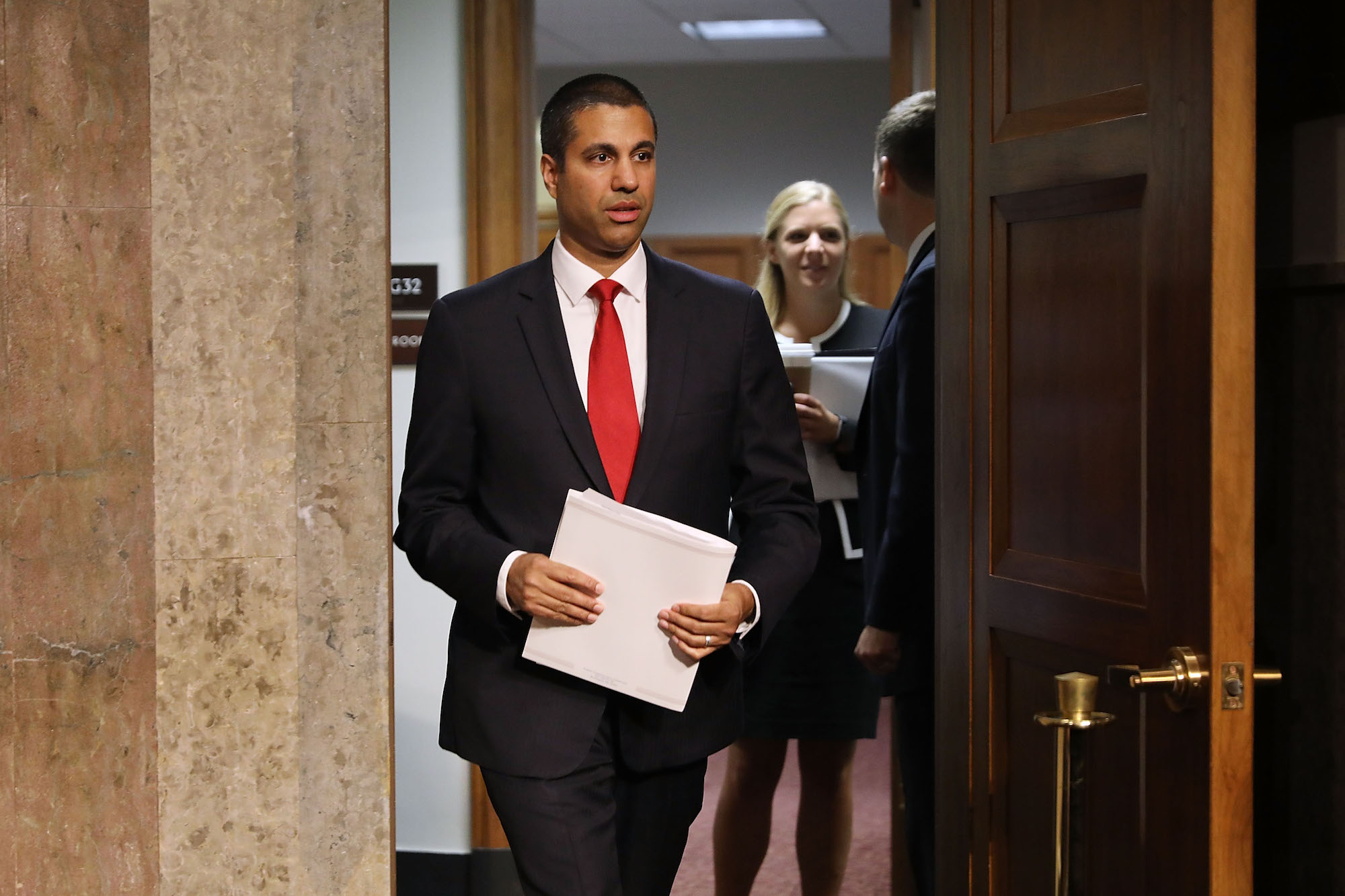Liberals and Conservatives Attack TV Merger That Would Let Pro-Trump Media Dominate Local News

Credit to Author: Sam Gustin| Date: Wed, 30 Aug 2017 17:41:43 +0000
Sinclair Broadcast Group’s proposed $3.9 billion buyout of Tribune Media would raise prices for consumers, harm media diversity, and consolidate too much power in the hands of a single corporate giant, threatening “the health of American democracy,” according to critics of the deal who are urging federal regulators to block the merger.
As the Federal Communications Commission’s deadline for public comments on the deal passed on Tuesday, a broad and ideologically diverse array of public interest advocates, consumer groups, and industry competitors voiced their strong opposition to a merger that would create a national broadcasting behemoth with an unabashedly right-wing, pro-Trump political orientation.
Baltimore-based Sinclair already owns or operates 173 local TV stations around the country. If regulators allow the company to gobble up smaller rival Tribune, Sinclair could control more than 230 stations, which reach 72 percent of the American public. And much to the alarm of public interest advocates, Trump’s FCC chief Ajit Pai is paving the way for the deal’s completion by reinstating an obsolete regulatory loophole that will allow Sinclair to avoid federal media ownership limits.
“This massive consolidation will lead to higher prices and fewer choices for consumers,” according to the Coalition to Save Local Media, an umbrella group that includes left-leaning advocacy groups like Public Knowledge and Common Cause, as well as right-leaning media organizations like One America News Network and Glenn Beck’s The Blaze. “Through its acquisition of Tribune, Sinclair Broadcasting will stifle local and independent media voices and put profits ahead of their local viewers, jeopardizing both localism and competition.”
The proposed Sinclair-Tribune merger has created an unlikely alliance of opposition. In a FCC filing earlier this month, the conservative news organization Newsmax, whose founder Christopher Ruddy is a close friend of President Trump, warned: “A free and diverse press, a bedrock principle of American democracy, will be crippled by this proposed merger.”
And earlier this week, a coalition of liberal groups including the Latino Victory Project and Color of Change told the FCC that the Sinclair deal poses a threat to “the health of American democracy” because it could “distort balanced media coverage in potentially negative ways and yield particularly harmful consequences in diverse communities like ours.”
“Sinclair has failed to explain how this multi-billion dollar merger could possibly be in the public interest.”
The FCC has jurisdiction over this merger because it involves the transfer of TV broadcast licenses from Tribune to Sinclair. And as a matter of federal law, the FCC must ensure that the merger serves the “public interest” by advancing the FCC’s federally-mandated goals of media diversity, localism, and competition.
Sinclair argues that the deal is in the public interest because “the natural synergies of bringing Sinclair and Tribune together will enable the combined company to invest in unique programming that addresses the news, information, and public safety needs of local communities.” In a statement, Sinclair CEO Chris Ripley added: “This acquisition will help to ensure the future of the free and local television model for both Tribune’s and Sinclair’s local communities.”
Critics of the merger say those claims obscure how the deal could actually harm the public by creating a massive, centrally-controlled local broadcasting juggernaut with immense market power to extract higher fees from cable and satellite providers, ultimately leading to higher prices for pay-TV consumers. Critics also warn that Sinclair could seek to eliminate “duplicative” local news programming, leading to job losses and a reduction of media diversity at the local level.
“Anyone who values decentralized government control, states rights and independent voices should oppose this merger that would harm citizens and weaken our democracy,” Ed Black, CEO of the Computer & Communications Industry Association, a leading technology trade group, said in a statement. “It’s a concern that a merger that would be so harmful to rural areas, independent news stations and citizens could even be considered.”
“This is not the Soviet Union: Americans deserve a meaningful choice in their local news.”
Public interest advocates and Democratic lawmakers are particularly alarmed that Trump’s FCC appears to be actively aiding the expansion of a media giant with a well-known reputation for requiring its stations to broadcast “must-run” pro-Trump news commentary. Sinclair reportedly struck a deal with Trump’s presidential campaign for favorable election coverage, and earlier this year hired former Trump aide Boris Epshteyn as its chief political analyst.
In April, FCC chief Ajit Pai pushed through a measure reinstating an outdated regulatory loophole called the “UHF discount,” which allows broadcasters to discount by 50 percent the reach of local stations that use ultra-high-frequency (UHF) TV signals for the purposes of federal media ownership compliance. Pai’s move will allow Sinclair to exceed the 39 percent federal TV ownership limit by “discounting” the reach of Tribune’s UHF stations.
“Sinclair has long evaded the FCC rules it’s now trying to completely erase with the help of the Trump FCC under Chairman Pai,” Craig Aaron, President and CEO of DC-based public interest group Free Press, said in a statement. “Sinclair forces its local stations to air pro-Trump propaganda and then seeks favors from the Trump administration worth billions. This should be a national scandal.”
Last month, two Democratic lawmakers, Rep. Jared Huffman of California and Rep. David Price of North Carolina, introduced the Local and Independent Television Protection Act, which would permanently close the “UHF discount” loophole, in an effort to stem the tide of media consolidation, and protect what’s left of media diversity in local TV broadcasting.
“This is not the Soviet Union,” Rep. Huffman said in a statement. “Americans deserve a meaningful choice in their local news, and our Local and Independent Television Protection Act would ensure that every American has access to a variety of local news sources that report on the local—and national—issues they care most about.”